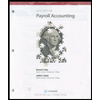Kay Christian manages a company that produces wedding gowns. She produces both a custom product that is made to order and a standard product that is sold in bridal salons. Her accountant prepared the following forecasted income statement for March, which is a busy month. Custom Dresses Standard Dresses Total Number of Dresses 10 20 30 Sales Revenue $50,000 $30,000 $80,000 Materials $10,000 $8,000 $18,000 Labor $20,000 $9,000 $29,000 Machine Depreciation $600 $300 $900 Rent $4,200 $2,800 $7,000 Heat and Light $1,000 $600 $1,600 Other production costs $2,800 Marketing and Administration $7,700 Total Costs $67,000 Operating Profit $13,000 Kay already has orders for the 10 custom dresses reflected in the March forecasted income statement. The depreciation charges are for machines used in the respective product lines. Machines depreciate at the rate of $1 per hour based on hours used, so these are variable costs. In March, cutting and sewing machines are expected to operate for 900 hours, of which 600 hours will be used to make custom dresses. The rent is for the building space, which has been leased for several years at $7,000 per month. The rent, heat and light are allocated to the product line based on the amount of floor space occupied. A valued customer, who is a wedding consultant, has asked Kay for a special favor. This customer has a client who wants to get married in early April. Kay’s company is working at capacity and would have to give up some other business to make this dress. She can’t renege on custom orders already agreed to, but she can reduce the number of standard dresses produced in March to 10. Kay would lose permanently the opportunity to make up the lost production of standard dresses because she has no unused capacity for the foreseeable future. The customer is willing to pay $24,000 for the special order. Materials and labor for the order will cost $6,000 and $10,000, respectively. The special order would require 140 hours of machine time. Kay’s company would save 150 hours of machine time from the standard dress business given up. Rent, heat and light, and other production costs would not be affected by the special order. Required: 1) Should Kay take the order? Explain (show how you arrived at) your answer? 2) What is the minimum price Kay should accept to take the special order. 3) What are other factors, if any, besides price that she should consider?
Master Budget
A master budget can be defined as an estimation of the revenue earned or expenses incurred over a specified period of time in the future and it is generally prepared on a periodic basis which can be either monthly, quarterly, half-yearly, or annually. It helps a business, an organization, or even an individual to manage the money effectively. A budget also helps in monitoring the performance of the people in the organization and helps in better decision-making.
Sales Budget and Selling
A budget is a financial plan designed by an undertaking for a definite period in future which acts as a major contributor towards enhancing the financial success of the business undertaking. The budget generally takes into account both current and future income and expenses.
Kay Christian manages a company that produces wedding gowns. She produces both a custom
product that is made to order and a standard product that is sold in bridal salons. Her accountant
prepared the following
Custom Dresses Standard Dresses Total
Number of Dresses 10 20 30
Sales Revenue $50,000 $30,000 $80,000
Materials $10,000 $8,000 $18,000
Labor $20,000 $9,000 $29,000
Machine Depreciation $600 $300 $900
Rent $4,200 $2,800 $7,000
Heat and Light $1,000 $600 $1,600
Other production costs $2,800
Marketing and Administration $7,700
Total Costs $67,000
Operating Profit $13,000
Kay already has orders for the 10 custom dresses reflected in the March forecasted income
statement. The depreciation charges are for machines used in the respective product lines.
Machines depreciate at the rate of $1 per hour based on hours used, so these are variable costs. In
March, cutting and sewing machines are expected to operate for 900 hours, of which 600 hours
will be used to make custom dresses. The rent is for the building space, which has been leased
for several years at $7,000 per month. The rent, heat and light are allocated to the product line
based on the amount of floor space occupied.
A valued customer, who is a wedding consultant, has asked Kay for a special favor. This
customer has a client who wants to get married in early April. Kay’s company is working at
capacity and would have to give up some other business to make this dress. She can’t renege on
custom orders already agreed to, but she can reduce the number of standard dresses produced in
March to 10. Kay would lose permanently the opportunity to make up the lost production of
standard dresses because she has no unused capacity for the foreseeable future. The customer is
willing to pay $24,000 for the special order. Materials and labor for the order will cost $6,000
and $10,000, respectively. The special order would require 140 hours of machine time. Kay’s
company would save 150 hours of machine time from the standard dress business given up.
Rent, heat and light, and other production costs would not be affected by the special order.
Required:
1) Should Kay take the order? Explain (show how you arrived at) your answer?
2) What is the minimum price Kay should accept to take the special order.
3) What are other factors, if any, besides price that she should consider?
Trending now
This is a popular solution!
Step by step
Solved in 3 steps with 2 images







